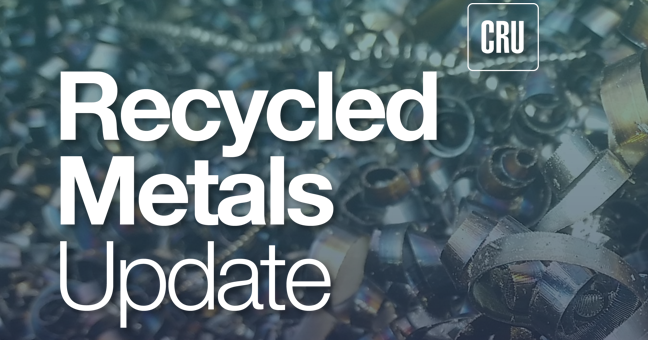Product

May 24, 2024
Will China tariffs have desired effect?
Written by Stephen Miller
The Biden administration recently announced tariffs on several products from China, including steel and aluminum. There has been much rejoicing over this move and there has been a great deal of support from the steel industry.
China was already subject to tariffs under Section 232, which had been in effect since 2018. These new tariffs may help our steel industry to keep prices at elevated levels, whether deserved or not.
But what effect will it have for the recycled metals community?
If they cause the price of steel to increase or merely maintain, does this really help recycled iron and steel? Granted, if it spurs greater steel production, there will be demand for more scrap. As far as pricing goes, steelmakers have shown over a long period of time their willingness to decouple steel pricing from raw material pricing.
In 2021, when hot-rolled coil (HRC) started pushing against the $2,000-per-short-ton (st) threshold, did the price of scrap steel follow along? It did go up on a demand/push basis, but ebbed below $535/st. The recycled iron and steel community only modestly shared in the spoils.
It seems our politicians and select industry leaders have developed a hair-trigger approach to foreign competition, whether fair or unfair. I wonder if imposing tariffs, quotas, or embargoes is a sign of strength or weakness. It’s not the intention of this article to answer or debate political issues. Rather, it’s to point out to the recycling community the potential risks that come with this type of attitude that has been developed by our industrial and political leaders to address trade issues, especially when those industries have an ax to grind with the remedy.
Regarding embargoes, many of our readers may not know about the scrap metal embargo of 1940. As Japan was gaining strength by invading countries like China and later French Indochina, the US was supplying scrap iron and steel to several countries, including Japan. In fact, Japan was a very large buyer of US scrap.
That year, a large US-based scrap trader and processor concluded a 250,000-ton order of steel scrap for shipment to Japan. In 1940, this was considered an extremely large order. The trader started to accumulate massive tonnages at ports on both the East and West Coasts. Just prior to the shipments taking place, the Roosevelt administration embargoed scrap metal (and oil) shipments to Japan. No other country except Great Britain could receive scrap from the US.
As you can imagine, with scrap tonnages extremely displaced on both coasts, and companies unable to ship except to mills in the US, the price of scrap plummeted until these displaced tonnages were completely depleted. Needless to say, it cost the American scrap industry dearly.
I am not saying this was the wrong decision by our government given that the winds of war were blowing at that time. But tariffs, quotas, and embargoes do have a destabilizing effect and can lead to unintended consequences. Only 14 months later, Japan attacked Pearl Harbor.
The point is that this type of remedy has been used in the past. Could it happen again to recycled metals? As the EAF conversion becomes more pronounced worldwide and demand for scrap intensifies, despite the efficiency of the American recycling industry, there may be calls for the limitation of scrap exports from the US. Whether it’s done for national security reasons, for votes, or as a handout to certain industry interests, it could spell trouble for the recycled metals community. We should think long and hard about these types of actions. After all, those who don’t learn from history, are doomed to repeat it.







